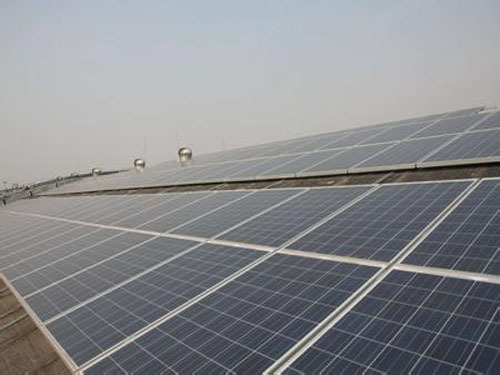
In June, China's imports of polysilicon were 9566 tons, a surge of 37.7% year-on-year, hitting a record high for single-month imports over the years. Among them, 7662 tons of polysilicon were imported through processing trade, accounting for as high as 80.1%.
Large number of imports, large amount of "tax evasion"
Earlier this year, the Ministry of Commerce ruled that "the United States imported 53.3%-57% anti-dumping tariffs on imported polysilicon, and imposed 2.3%-48.7% anti-dumping duties on polysilicon imported from South Korea." However, the large increase in the import volume of polysilicon proves that this “double reverse†does not have a substantial impact on the imports of polysilicon from the United States and South Korea.
In the first half of this year, China’s cumulative import of polysilicon was 45,932 tons, an increase of 17.4% year-on-year, of which imports reached 34,068 tons through processing trade, accounting for 74.2% of total cumulative imports; imports of re-exports through China’s Taiwan reached 4,765 tons, accounting for cumulative 10.4% of imports.
In June, the total amount of imported polysilicon in China reached 9566 tons, of which 8,570 tons of polysilicon were imported from Korea, the United States, and Germany, accounting for 89.6% of the total imports. The import volume from South Korea was 3,416 tons, accounting for 35.7% of the total import volume; the import volume from the United States was 1,936 tons, accounting for 20.2% of the total import volume; and the import volume from Germany was 3,218 tons, accounting for 33.6% of the total import volume. Processing trade dominates the import volume.
Take the United States as an example. In June, China imported 1936 tons of polysilicon from the United States, an increase of 64.8% compared with the previous period. Except for 150 tons of semi-conductor polycrystalline silicon that was not in the “double-reaction†range, it was imported through general trade, and other 1,786 tons all went through processing trade. The way to avoid "double reverse" taxation, accounting for up to 92.3%.
From January to June, the United States exported 8,437 tons of polysilicon to the processing trade, at a price of 160 yuan per kilogram, paid a duty at a minimum anti-dumping rate of 53.3% (not yet a 17% VAT), and the United States passed the processing trade. "Avoidance of" tariffs will exceed 700 million yuan.
Inclusion of polysilicon in processing trade can be effective and vice versa
From this point of view, polysilicon manufacturers such as the United States have been exporting polysilicon to China through existing processing trade policies, which has become a routine means of evading tariffs and anti-dumping duties. The incorporation of polysilicon into the processing trade is prohibited, and the difficulties faced by polysilicon enterprises, especially the second- and third-tier polysilicon companies, have been alleviated. This has made crystal silicon companies hope to reach a demand. Of course, it can also become a countermeasure against China's "double-reaction".
A polysilicon company official said that since the implementation of China's solar-grade polysilicon "double reaction" against the United States and other countries, overseas companies have adopted a large number of processing trade import methods to escape punishment. If solar-grade polysilicon is included in the list of banned commodities in the processing trade, it will not only consolidate the achievements of trade rights protection, but also indirectly yield counterproductive effects.
Industry insiders predict that the import of polycrystalline silicon imported from the United States will be prohibited by trade processing, and it is expected to reduce imports by about 20,000 tons. At present, there are more than 13 polysilicon producers such as Jiangsu Zhongneng, Xinjiang Special Change, and Xinjiang Daquan, which are still in production. The production capacity can meet the domestic demand for polysilicon, and due to sufficient domestic production capacity, there will not be much change in prices. .
It seems that the inclusion of polysilicon in the prohibition of trade processing will not only be a countermeasure against the US "double reaction," but it will also provide opportunities for domestic polysilicon companies, especially the second and third tier companies, to weather the difficulties.
Flat Wire High Current Inductor
Flat Wire High Current Inductor,Small Flat Wire Common Mode Inductors,High Current Flat Wire Inductors,High Power Flat Wire Inductors
Shenzhen Sichuangge Magneto-electric Co. , Ltd , https://www.rodinductor.com